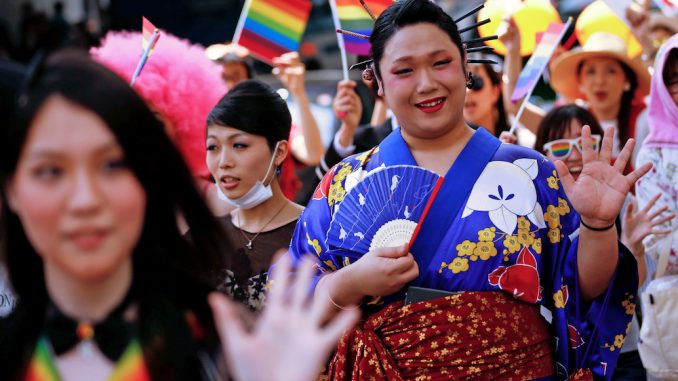
- Current rules on legal gender recognition require the removal of gonads of applicants.
- United Nations said sterilization as a prerequisite to gender change constitutes human rights violation.
- The Japanese Justice Ministry claimed that the said rule prevents problems arising from a birth of a child from a parent who had transitioned but retained the reproductive ability to give birth.
Advocates are urging the Japanese government to reform guidelines that cover legally gender recognition of transgender people under the legislation with the title Law 111, specifically the rule on sterilization, in an article by The Independent published last December 1 2017.
When introduced in 2003, the law was hailed as progressive in terms of according rights to transgender people and forwarding equality for LGBT people in general.
However, applicants for legal gender recognition face considerable challenges and restrictions.
Their applications are filed before a family court and they are required to be single, without any children who are younger than 20 years old, diagnosed with the psychiatric condition of gender identity disorder, and sterilized.
Applicants must no longer have functioning gonads permanently, a guideline that is condemned by the United Nations and the World Health Organization, while the advocacy group Human Rights Watch considered it forced sterilisation.
For instance, in 2013, the UN special rapporteur on torture said that having sterilization as a requirement for legal gender recognition can be considered a violation to human rights.
On Wednesday, Human Right Watch called out the government to scrap the guideline and revise Law 111, saying, “Forcing people to undergo unwanted surgeries to obtain documentation is contrary both to Japan’s human rights obligations and its reputation as a champion of LGBT rights.”
Earlier this year, the said guideline was challenged by a case of a transgender man who wanted to marry his girlfriend while still having the ability to give birth.
Takakito Usui, 43, who was born a female, filed the suit before the family court. As same-sex marriage is prohibited in Japan, he hoped to change his gender as required for marrying his girlfriend and to retain her ability to have children.
“I hear some people who underwent operations came to regret them,” Usui said. “The essential thing should not be whether you have had an operation or not, but how you want to live as an individual.”
Usui lost his case however.
The Justice Ministry explained that the requirement of surgery among applicants is established to prevent confusion and problems brought about by the birth of a child from someone whose reproductive ability is retained from previous sex.
According to a survey by the Japanese Society of Psychiatry and Neurology, 20 percent of the 15,000 people who sought expert advice on gender identity have chosen to be sterilized to be legally change their gender between 2004 and 2012.
Perception and attitudes towards the LGBT community have changed over the past several years. For example, one of related transgender top stories this year was the election of transgender man to public office.
However, transgender people still struggle with discrimination in their jobs, at school, and healthcare.
Internationally, sterilization is still required for legally changing gender in several countries.
People who want to be recognized of their preferred gender in Sweden were sterilized until 2013. Meanwhile, activists have failed so far to reform similar legislation in Finland.



Be the first to comment